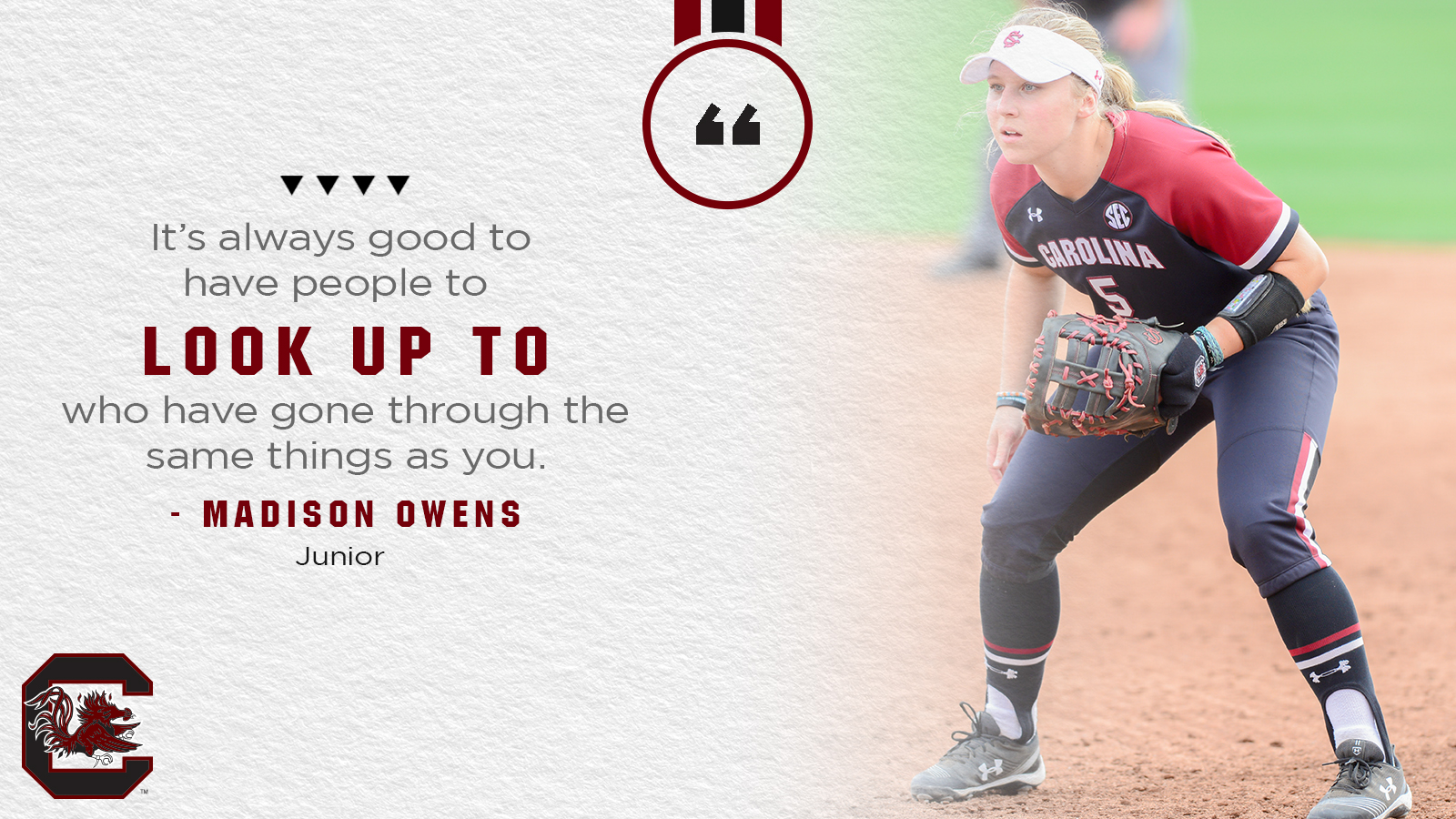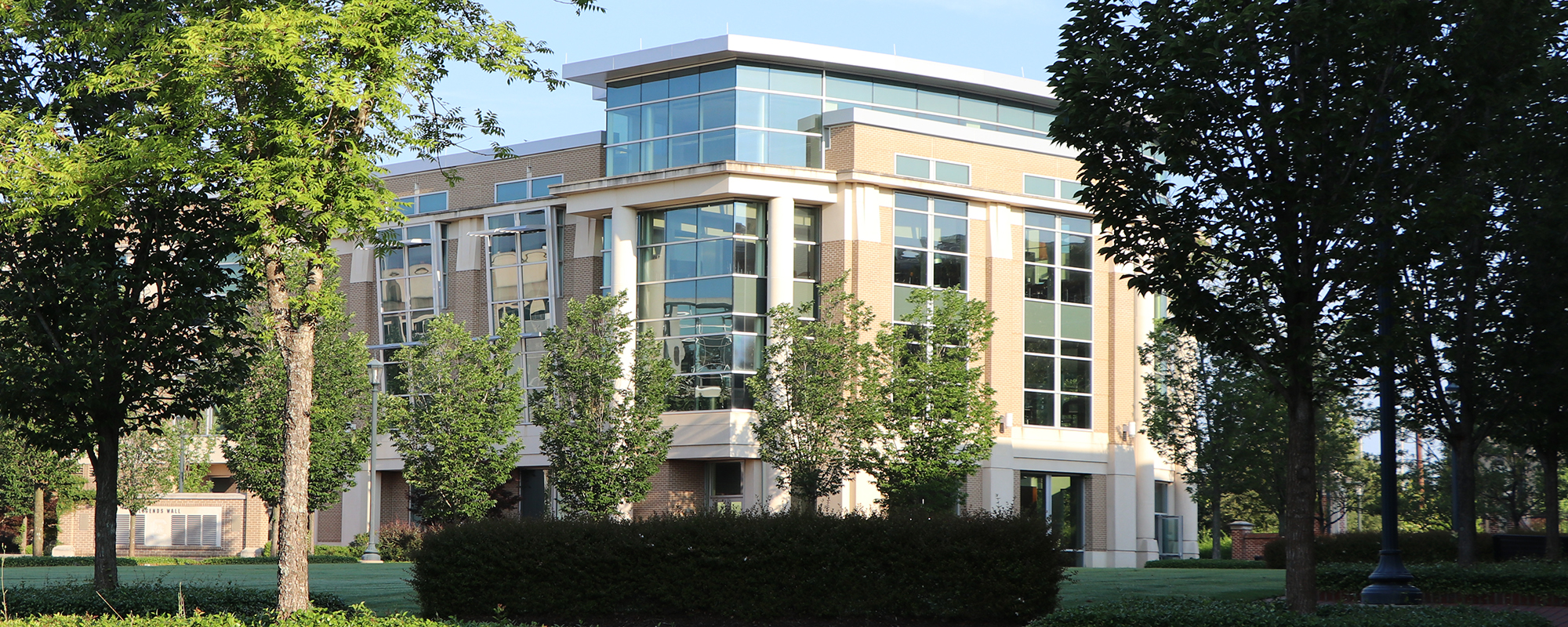
Learning from struggles for post-sports life among topics at Gamecock CEO event
Gamecock CEO wrapped up its Summer Huddle Series with a pair of successful former Gamecocks demonstrating how the struggles in managing time as a student-athlete can work in your favor in life after sports. Gamecock CEO is South Carolina’s student-athlete development program.
“One of the most interesting things is how well they were able to promote athletics in order to showcase themselves for a job,” said junior softball student-athlete Madison Owens, who is studying exercise science. “I plan on attending medical school after I finish my undergrad here in the hopes of becoming a pediatrician. I believe our schedules are unimaginable to people that haven’t endured them, so I think time management, being able to handle stressful situations and persevere when the pressure is on will be effective when it comes to undergoing something as rigorous as going to medical school.”
“It was interesting hearing their transition from when you’re a student-athlete and you have a lot of privileges and you receive a lot of help, and then transitioning into the real world where you’re on your own,” said senior swimmer Caroline Spence, who is studying public health. “It makes you grow up really fast. So, it’s important to be prepared for that.”
Former football standout Dr. Jim Beard (1970-1973), who is now a developmental behavioral pediatrician and has practiced in Greenville for the last 40 years, along with former basketball player Lyn Burkholder (1963-1967), who recently retired after a successful career as a mechanical engineer, talked to the student-athletes about their journeys in their respective challenging fields.
“I’ve been blessed to stay in pediatrics,” Dr. Beard said. “I was lucky enough to have mentors; guys that I considered heroes. Guys that I wanted to try to emulate to build myself up. I played alongside John LeHeup, who was an All-American defensive tackle. I always played better because of John because I wanted to elevate my game. In life, you need to have heroes. Someone who will elevate you. You don’t to have to be just like them, but you need to find a trait that you like.
“I started all of my junior year and then they brought in some new coaches. My career went from being a starter to be on the second team my senior year, but I did not quit the team. That helped me learn pretty quickly that my life as an athlete was terminal; it wasn’t going to last forever, but my life as a physician wasn’t going to be just four years. It was going to be there the next 40-plus years. Going from a starter to a second teamer helped me get perspective.”
“I didn’t have the money to go to college, so athletics gave me the opportunity to get an education,” Burkholder said. “I grew up on a dairy farm. Athletics was my steppingstone into an engineering career.
“Being an engineering student and playing sports was difficult. Coach (Frank) McGuire was very supportive. I had to miss a lot of practices because of engineering labs, so he allowed me to practice with the freshman team. He put athletics underneath being a student. Sometimes roadblocks do come your way. You just need to be persistent and be open minded. Usually, there is an option to every roadblock as you go through in life.”
“Be a life-long learner, Don’t let your life stop when sports end.”
– Dr. James Beard
After finishing school, the former Gamecocks said their struggles in juggling classes and athletics commitments worked in their favor when it came time to go to work.
“When you’re an athlete, you get attention, praise and respect that you don’t necessarily earn,” Beard said. “It is an adjustment when your self-esteem is built on sports and all of the sudden, sports are over. I changed my focus when I used college football as a vehicle to get my education. It opened doors for medical school because I was able to show that I had the ability to manage time and effort and marshal myself to get the job done even if I was tired from practice and all that. To me it was a normal transition because it was something I planned and just did.
“I grew up quickly when I had to deal with people who were terminal. The month before I was finishing up my pediatric residency, we had our first child. When you’re holding your baby, knowing your now responsible, that was a pretty defining moment that I had to provide a future for my family.”
Beard told the student-athletes to expect struggles along their own journeys, but don’t let that stop them.
“Don’t quit. Be a life-long learner,” Beard said. “Don’t let your life stop when sports end.
“The fact that you are college athletes and still able to be academically successful, that’s marketable. Doors will open by people who understand that you can manage your time to get all these things done. Don’t ever minimize the importance of that. Let people who can help you, help you. Network! Use the resources that are available and through the contacts that you meet.”
Hearing advice from those that had once been in their shoes helped ease some apprehension the current student-athletes may have had about transitioning to life after sports.
“It’s always good to have people to look up to who have gone through the same things as you,” Owens said.
“I really liked when they talked about the first time they felt like an adult,” Spence said. “I never really thought about that. I guess there will be defining moments, and it was great to hear from folks who have similar careers to what I want to do.
It makes it less stressful in hearing from people who have been in the same position that I am in right now and seeing how successful they have been in transitioning from college into professional life. If they can do it, then I will be fine, too!”












